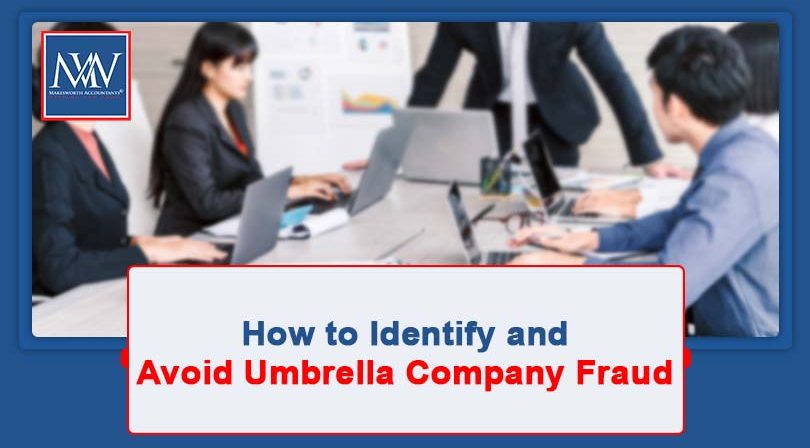
How to Identify and Avoid Umbrella Company Fraud
Introduction
Umbrella companies are often used by recruitment agencies to pay temporary or contract workers. While many operate legitimately, a growing number are involved in tax avoidance and non-compliant schemes. To protect workers, HMRC is increasing efforts to tackle umbrella company fraud — including publishing Spotlight 71, which outlines key warning signs to watch out for.
If you’re working through an umbrella company, it’s important to stay alert and regularly review your employment contract, pay slips, and salary payments to ensure everything is legitimate.
Employment Contract Red Flags
Your employment contract should clearly outline your terms of work and who employs you. Be cautious if you notice any of the following signs:
-
You are unexpectedly transferred to a new umbrella company with little to no paperwork.
-
You sign a contract with one company but get paid by another, often with a similar name or one based overseas.
-
You are asked to sign multiple contracts or agreements, such as an “annuity” or “loan” arrangement in addition to your employment contract.
👉 Signing more than one contract is not normal practice and could indicate that you are being moved into a tax avoidance scheme.
Pay Slip Warning Signs
You are legally entitled to receive a pay slip for each pay period — and it should match your agreed pay and deductions. Look out for:
-
Unexpected changes to the PAYE reference, employer name, or payment method.
-
Gross or net pay amounts that are lower than expected.
-
A mismatch between your net pay on the pay slip and the amount actually credited to your bank.
-
Incorrect or missing tax and National Insurance deductions.
-
Receiving a paper pay slip instead of your usual online one.
-
Losing access to your online payroll portal after being moved to a new system.
If your pay details suddenly change without explanation, it could mean the umbrella company has shifted you to a new payroll — potentially to hide non-compliant activity.
Salary Payment Irregularities
Always cross-check your bank statements with your pay slips. Your take-home pay should be a single, consistent payment. If you start receiving multiple payments, or if part of your pay is not taxed, this could be a clear sign of tax avoidance.
Unexpected Payroll Changes
Being told that your payroll is changing because there are “too many workers” or for “system updates” may sound harmless — but it’s often a red flag. Payroll systems have no limit on the number of employees, so this explanation rarely holds up.
What to Do If You Suspect Fraud
If something doesn’t feel right:
-
Ask your umbrella company for clarification — but be aware that non-compliant ones may avoid direct answers.
-
Switch to a trusted, compliant umbrella company as soon as possible. Do your due diligence before signing anything new.
-
Report suspected fraud to HMRC. Reports can be made anonymously via HMRC’s online service.
Final Thoughts
Umbrella company fraud can put workers at serious financial and legal risk. By paying attention to small details — from contract wording to payment patterns — you can protect yourself from becoming an unintentional participant in a tax avoidance scheme.
Always remember: if something seems off or too good to be true, it probably is.
Partner note: www.gov.uk/guidance/warning-for-agency-workers-and-contractors-who-are-moved-between-umbrella-companies-spotlight-71
For more information, Book a Free Consultation
Need Accountancy Support?
For information on bespoke training, or if you have any other questions for Makesworth Accountant, please fill in your details below
















 151
151